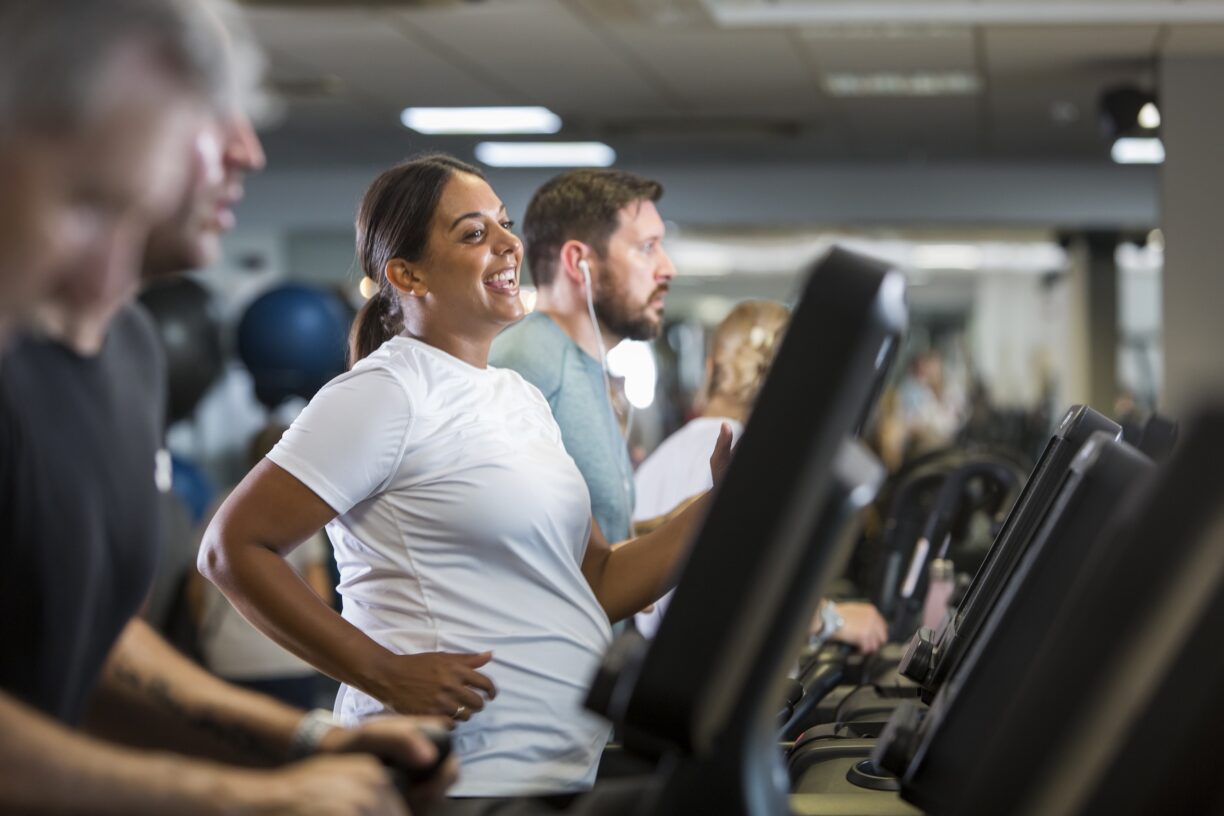During the pandemic, it is pretty fair to say that many of us have struggled with our mental health, largely because of the new and unfamiliar situations we have had to adapt to.
For example, working from home, not seeing family and friends, and not engaging in our usual activities, many of which help to reduce anxiety and stress.
Recent research by leading fitness and lifestyle app Freeletics found that 64% of Brits claim that their mental health has become more of a priority in the past year, making it more important than ever that we prioritise managing our mental health as we try to get back to normal.
Thankfully around the world, and here in the UK, many of the restrictions which meant that we couldn’t do some of the things we love have now eased.
And, with much of the population now getting vaccinated, most of us are confident that we are experts on following guidelines to keep us safe – reducing anxiety when getting out and about and travelling.
Here are my top tips for managing your mood post-pandemic:
MAKE USE OF ONLINE RESOURCES AND COMMUNITIES
Post pandemic there are many ways that we can look after our mental health.
There are a number of different resources online and online communities where people can talk to professionals and get advice and tips about how to manage their mental health.
Examples include mind.org and Side by Side, as well as online information from the NHS.
Forums such as Sane Support Forum and the Bipolar UK eCommunity, as well as online cognitive behavioural therapy courses can be useful to improve your wellbeing too.
When looking for factual online information and guidance for mental health, take care to only use official resources and keep in mind who has written it, whether it’s up to date or there is a bias.
Fortunately for us we live in a very digital age, so where we still may not be able to see the people we might have been in touch with ordinarily pre-pandemic, this means we can still keep in touch with those loved ones and friends all around the globe without actually seeing them in person. It’s important that we make use of all the digital aids we have.
This means FaceTime calls and video chats, Skype and family Zoom chats, WhatsApp social media, and other platforms to keep in touch with those we love.
BE INVENTIVE WHEN IT COMES TO SOCIALISING
We know that socialising and connecting with others is very important when it comes to reducing anxiety and stress, as well as promoting good mental health.
If you’re slowly easing your way back into going out and about, continue to take it slow and at a pace that suits you.
As a starting point, you could watch a TV show or a movie online with your loved ones and friends, whether it’s a Netflix party or on Amazon Prime.
This means you can get similar joys as if you were there in person, but you don’t necessarily have to change your surroundings if you don’t feel comfortable.
REMIND YOURSELF OF THE GOOD TIMES
If you’re feeling lonely, a good tip is to engage with things that remind you of being around other people you love.
Whether it’s watching old videos of you with family and friends or putting up pictures of your loved ones around the home to make you feel better, it can remind you of happier times and influence your mood positively.
Listening to the radio and TV to hear chats with other callers calling in is also a good way to feel engaged with conversations that otherwise you may not be part of.
TAKE NOTE OF WHAT YOU’RE PUTTING INTO YOUR BODY
It is also very important to make sure you’re taking care of your physical health, as we know this has a profound impact on mental health.
This means making sure you’re eating a balanced and healthy diet and staying well hydrated, as well as reducing alcohol use, or smoking.
We know that a bad diet and excessive alcohol, smoking, and drug use play a part in causing detrimental mental health and can increase the chances and likelihood of suffering from a mental health condition such as depression or anxiety, as these are closely linked with substance abuse and obesity caused by a poor diet and lack of exercise.
KEEP FIT
Physical activity is a vital tool when it comes to boosting your mood. If you’re new to exercise or don’t consider yourself to be very fit, setting small achievable goals and completing them can subsequently give you a dopamine rush which will improve your mood and can help reduce any chance of developing poor mental health conditions.
Creating healthy habits and embarking on a fitness regime that is tailored to you, your goals and your ability can really make a huge difference to your mood and mental health.
Fitness apps like Freeletics are a brilliant place to start, giving you the tools to work out from the comfort of your own home and with no equipment.
With Training Journey’s suitable for any age and fitness level, it’s about choosing a plan which is right for you and making a commitment to being more active which offers huge benefits for your physical and mental health.
GO AT YOUR OWN PACE
Mental health is very personal. It is incredibly important that if you have any anxiety and stress after re-emerging into society after being locked down for so long, you take your time and do things at your own pace.
This may mean only going to functions where you feel confident and safe or shopping at times that are less busy and then trying and build your confidence back up until you can get back to the normal life routines you had before the pandemic.





